If you ever end up in the Center for Multicultural Initiatives (CMI), you’ll immediately be hit by a sense of comfort. The employees welcome you with a kind smile. The offices are donned with a collection of photos, flags, plants and knick-knacks. There’s a palpable buzz all around you, but it’s somehow calming.
This feeling has been cultivated for more than 30 years in the CMI, standing on the shoulders of generations of students who, through hard work, dedication and sacrifice, put in the work prior to 1993. The office has moved locations within North Foundation, changed names and sprouted new initiatives. But, above all, the CMI office has become a vital pillar at Oakland University, thanks to Omar Brown-El, CAS ’95 and ’05, whose resilience in his own educational endeavors helps guide other underrepresented students, changing their lives forever.
THE FUEL
“I came here because of my mother,” explains Brown-El, senior director of CMI. “It all starts with her. She was an educator in the Flint Public School system and saw the value of education, which as a young teenager was not my top priority.”
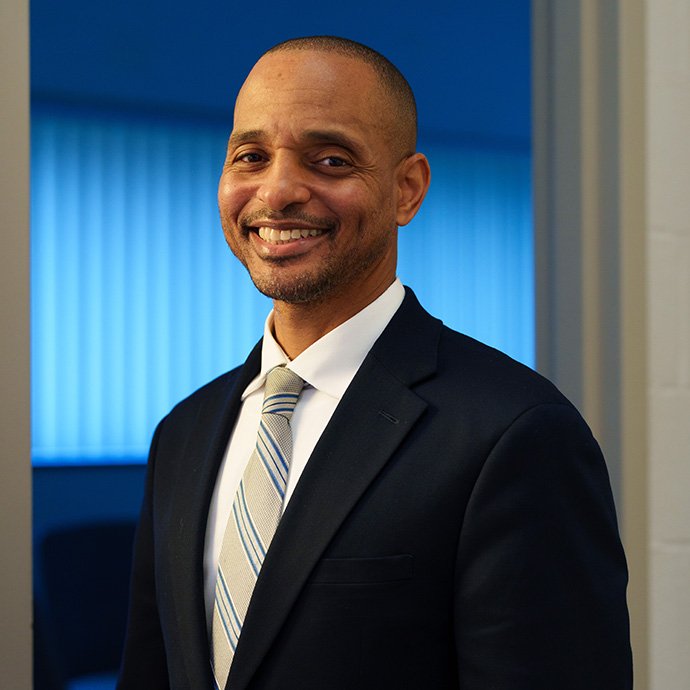 |
| Omar Brown-El, 2024 |
Brown-El’s mother knew that her son would live a better, more fulfilling life if he earned a degree, and she pushed him to apply to Oakland University. The only issue was that Brown-El was not a scholar student in high school; in order to be enrolled, he had to go through a summer program.
“The Academic Opportunity Program (AOP) was for students who are not as academically strong as others,” says Brown-El. “This would give students the opportunity to build some of their academic acumen over the summer prior to their first fall. That was the beginning of my academic journey and realizing my purpose.”
AOP wasn’t the kindling to the fire within Brown-El, it was the gallons of lighter fluid tossed into the flames.
“I realized very quickly that I was not prepared academically,” Brown-El recalls. “It wasn't that I wasn't capable. I just wasn't as interested as I could be. During that eight-week program, I was around the professors and older student mentors who told us that ‘there's an opportunity here for you.’ It was at that point things started to resonate with me.”
It was very early on in AOP that a switch flipped in Brown-El; seemingly overnight, he went from disinterested to going all in on his own education. For the first time in his life, he sat down with himself, thought about what he wanted to do, and began using his time at OU to discover what the most fulfilling path would be.
ACTIVATING ADVOCACY
Once fall semester started, Brown-El was motivated, disciplined and hungry to take on whatever OU had to offer, including any academic challenges thrown his way and getting involved in the Association for Black Students.
“There were students who were socially conscious and aware of things that I had not even considered,” explains Brown-El. “They would talk about apartheid in South Africa; I had no idea what that even meant. They talked with such fluidity; it made me realize that I was so far behind.”
Brown-El immersed himself in the association. Hearing his fellow students speak out about social injustices taking place not only around the world but also in his community ignited another passion in him.
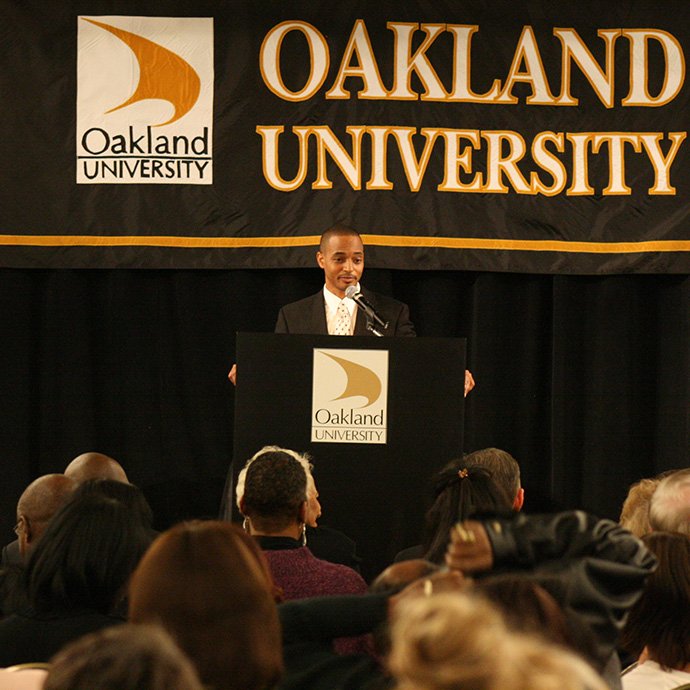 |
| Omar Brown-El, 2010, at Keeper of the Dream | Photo by Jake Block |
“I wanted to learn what I could do,” Brown-El says. “How can I be better in terms of social awareness and social advocacy? How can I break down barriers? How can I help those who have been exploited for so long?”
His starting point was to soak in as much information regarding these topics as possible. He read whatever he could get his hands on and worked diligently to be more aware of current events and the history of those who have been underrepresented. During his first year, Brown-El became a member of the Association of Black Students and took every opportunity they gave him. “I helped promote events on campus, worked closely with those in charge of marketing to get the word out about our initiatives and attended our events,” he says. “The association was my avenue into my leadership role.”
By his junior year, Brown-El was named president of the Association of Black Students, and his mission was clear.
“As the president of the Association of Black Students I needed to continue the work that had already begun on establishing an office that would speak to diversity initiatives and advocate for underrepresented students,” Brown-El says. “An office that would give us a seat at the table professionally.”
In 1993, Brown-El and the Association of Black Students organized a protest in order to land him a meeting with OU’s president, vice president and deans. What culminated was a near 300-student demonstration on campus that ended with the association occupying the president’s office and coming to terms to start an office to focus on diversity initiatives.
“After that meeting with the president,” explains Brown-El, “she took the plan to the Board of Trustees, where it was approved. We were going to have an office within student affairs that would report directly to the president, and money would be set aside for the office to use each year.”
Next step? Hire a director.
Oakland University put out a national search for a director for their new office. The university did initial interviews out of a pool selected by the president and the board and selected a list of five finalists. Those five finalists had one final interview scheduled, but this time, it was one-on-one with a 20-year-old Brown-El. He hired a young Glenn McIntosh, the man who would later become the university’s senior vice president for student affairs and chief diversity officer.
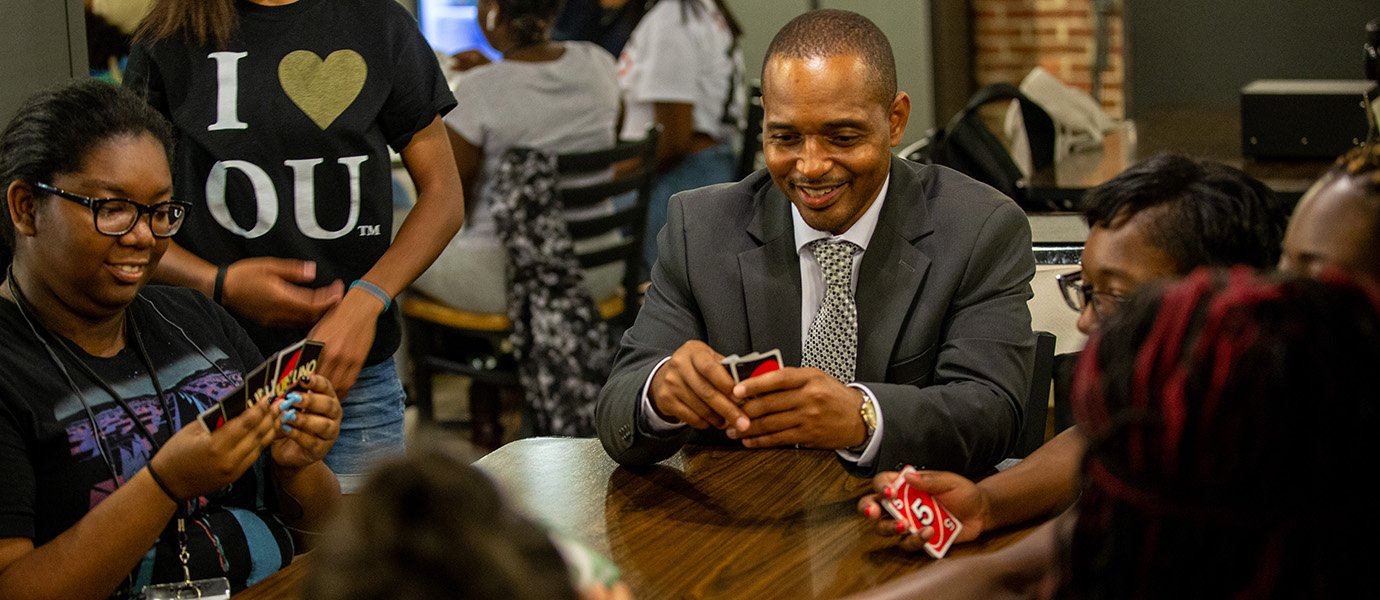 |
| Omar Brown-El, 2018, with students in the CORE Summer Bridge Program | Photo by Jon-Paul Bakaric |
FORGING A PATH
Brown-El’s hard work paid off in the long run. He was able to graduate and earn a degree in communications. But his time at OU came with a plethora of challenges, both academically and socially.
“I wasn't a great student, and I was struggling in the classroom just to make the minimum grade,” says Brown-El. “I was also dealing with all the social pressures of trying to advance diversity on campus. There were threats that were sent my way. I was pulled into the offices of administrators who said, ‘There are some people who don't want you to be here, you're just shaking the tree way too much.”
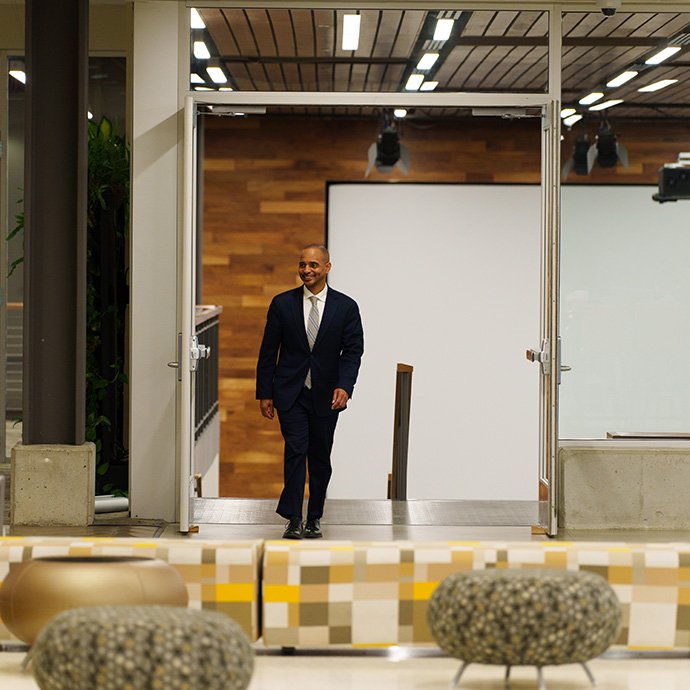 |
| Omar Brown-El, 2024 |
For the next seven years after graduating, Brown-El would bounce around to different jobs. He found himself in a role helping ex-cons, people with disabilities and people from low-income homes get back into the workforce. He would help them find the right training or opportunities to get back on their feet.
While Brown-El enjoyed this work, he felt that he wasn’t advancing in the right jobs for himself. He was being overlooked and his resume didn’t match up with his competition.
“I would go in and request a raise or a promotion, and they’d say, ‘We like you, however this person has an advanced degree.’ ‘We appreciate you, but we're going to give the job to this person.’ That happened about two or three times before I decided I’d have to go back to school,” Brown-El says.
This time, his focus would be on counseling. He graduated as an undergraduate with a 2.3 GPA, good enough to earn a diploma, but he wasn’t the most attractive applicant for graduate school.
It was around this time that he got a call from an old friend.
“Glenn reached out and said, ‘Hey Omar, I think you should come back to Oakland and work for us.’ I wasn’t interested at the time, but Glenn and his team were persistent. They thought I had something to offer to the students,” says Brown-El. “Eventually, I caved and became a retention coordinator for CMI.”
RETURN ON INVESTMENT
Over the next four years, Brown-El worked his way up the ladder before being named the director of CMI. After all his hard work, persistence and time spent building his skills, he finally felt like he was on the right track.
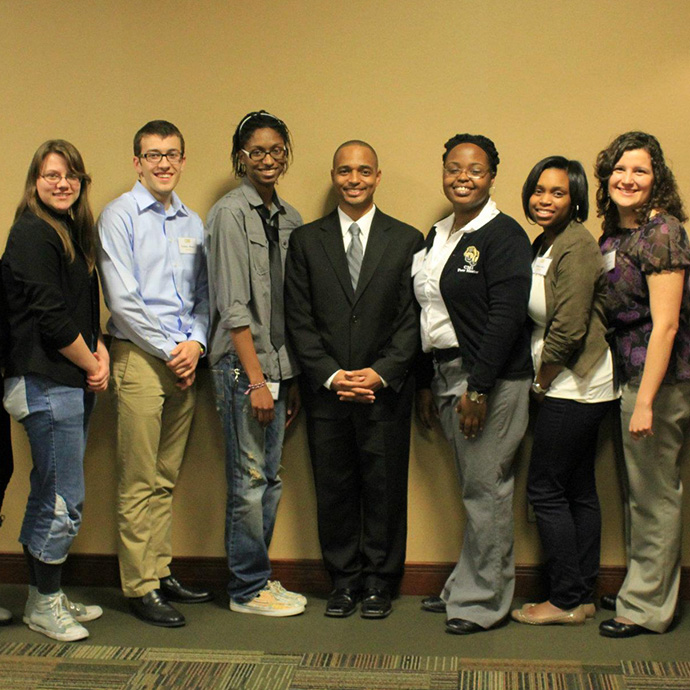 |
| Omar Brown-El, 2012, (center) at Center for Multicultural Initiatives graduates dinner |
“I have things that I can contribute,” says Brown-El. “I'm aware of my capabilities. I'm aware of my talents. But I'm also aware that if you don't keep those things within the bounds of something, your own strengths become your weaknesses. I teach my students to stay grounded.”
A natural-born leader, Brown-El has always had people gravitate toward him and his humility. In this role, he’s able to share his experiences and life lessons with younger generations, guiding them on the path toward becoming trailblazers.
“The students are the best part of my job; they're so wonderful and creative,” Brown-El says. “Their energy is this amazing thing. It's wonderful to work with young people and to see them have their ‘a-ha moments.’”
Brown-El is the catalyst for these students, guiding them to harness their energy and creativity and focus it to make a difference in the world. He offers a voice that many underrepresented students need.
Under Brown-El’s tutelage, CMI has become a safe haven for students. It’s a place where they feel that they belong. They know they have a support system to lean on, and Brown-El’s focus is to make sure that they succeed.
“When my staff are brought on, they see value in the work that they do; they see themselves being appreciated,” says Brown-El. “That's important to me. When they come to work, they know they’re not just another cog in the wheel. CMI is a family, we are very intentional about that.”
Brown-El is now the senior director of CMI. During his run as director, the retention rate of the OUTAS program has hit 90%, and the graduation rate is consistently in the 70th percentile.
|
Oakland University Trustee Academic Success (OUTAS) Program The Oakland University Trustee Academic Success (OUTAS) program is a nationally recognized program setting the standard for academic excellence and leadership development in the 21st century. The program focuses on providing scholarships and support for students adjusting to campus life who experience academic success in high school and meet the university’s admission requirements. Many student retention programs focus solely on non-regularly admitted (at-risk) students. |
They’ve been able to allocate funds and resources they never thought possible in order to support their programs and students. The number of staff and students involved in CMI continues to grow steadily. CMI has also inherited the Gender and Sexuality Center (GSC) and Veteran Support Services (VSS) under its umbrella.
But, true to Brown-El’s humble nature, he refuses to take the credit for CMI’s continuous growth and accolades.
“If we have success in the office, I may have been a lead on it, but everybody on the team contributed,” Brown-El says. “Somebody helped with marketing, somebody else welcomed them when they walked in, and so on. I cannot do all of this without my team; we're doing this together.”
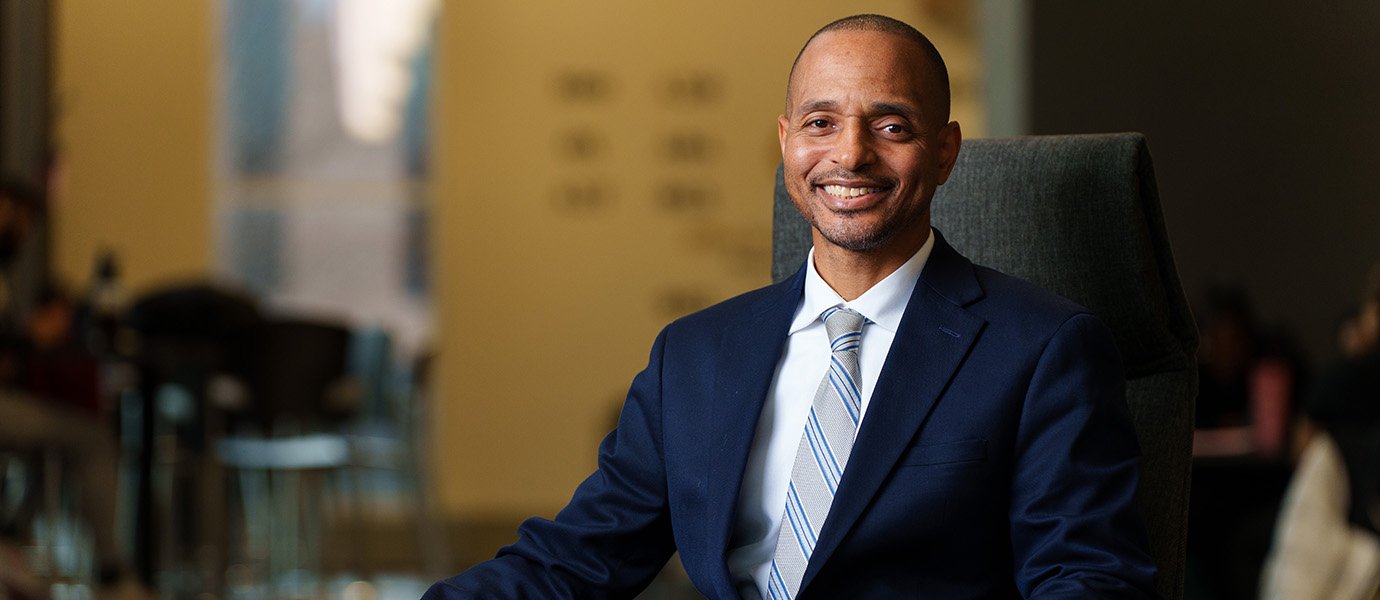 |
| Omar Brown-El, 2024 |
More Like This: |

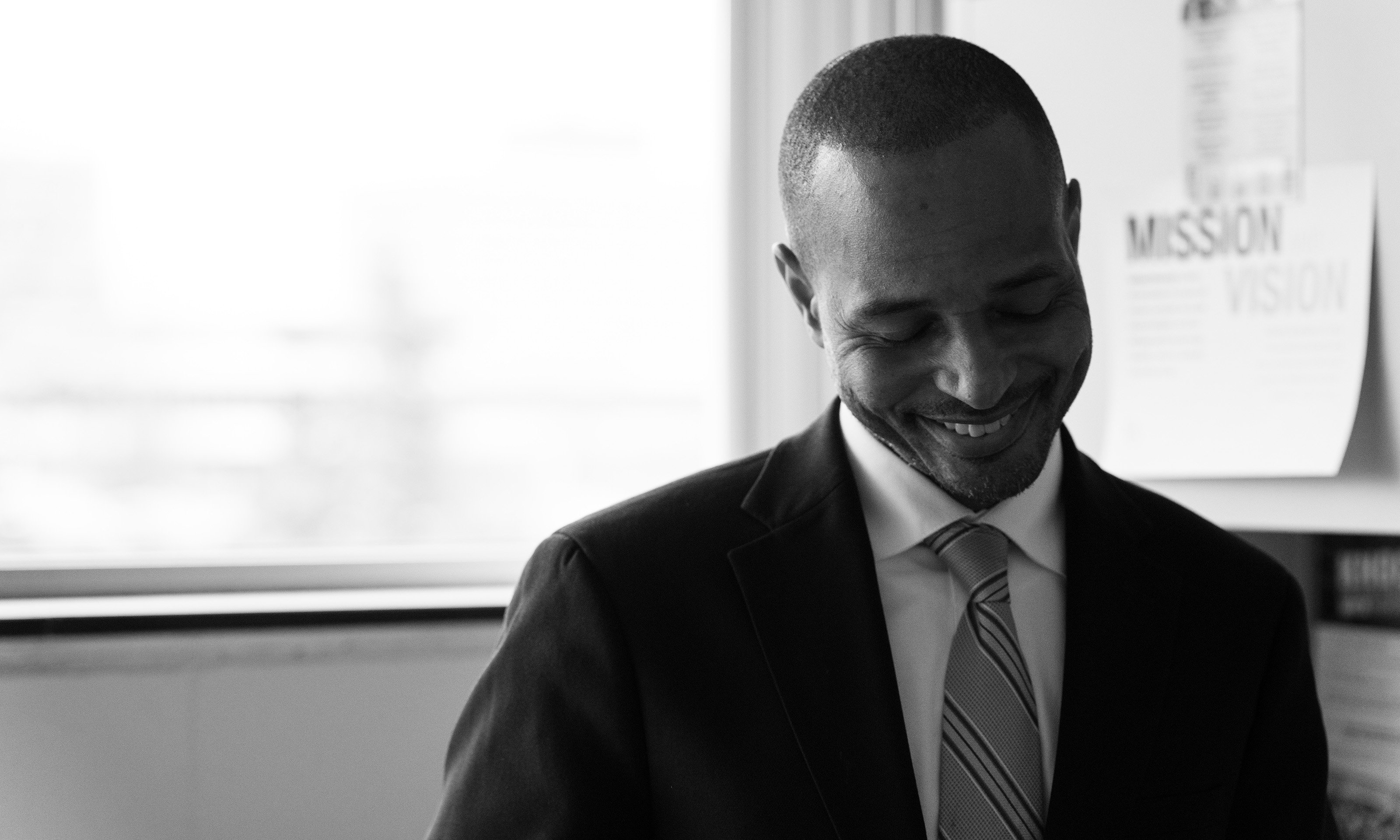
 June 13, 2025
June 13, 2025 By Michael Downes
By Michael Downes


